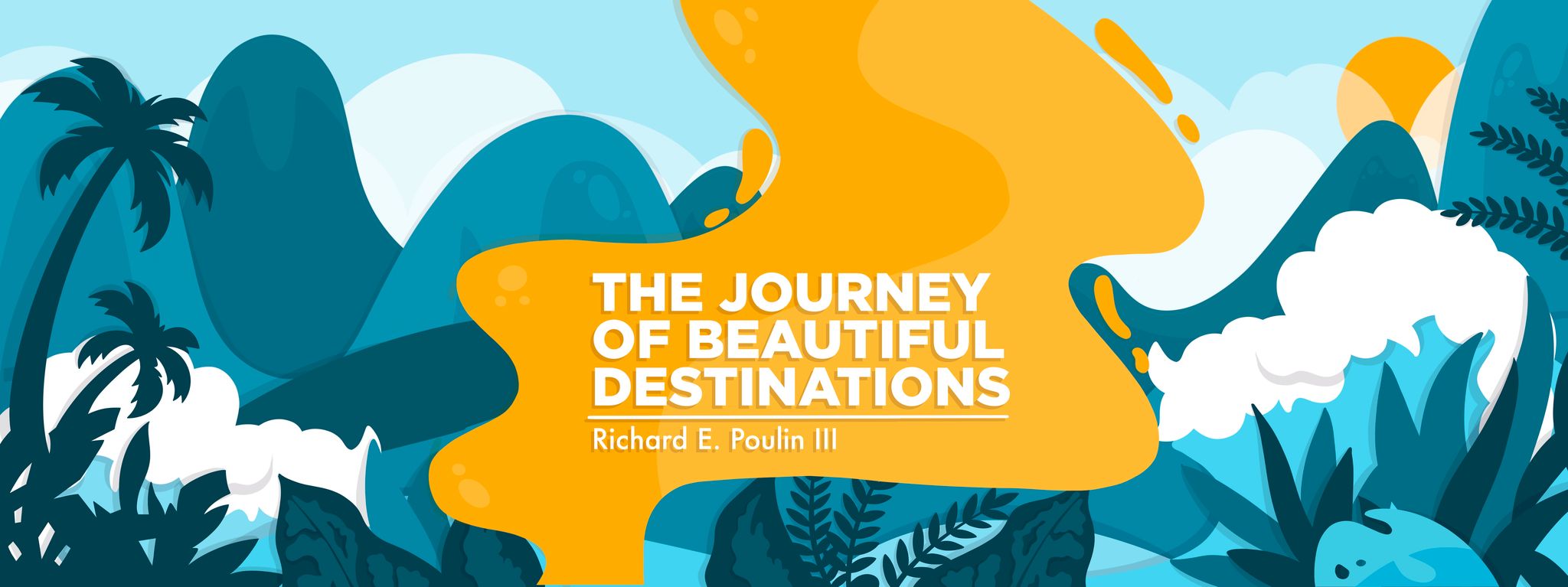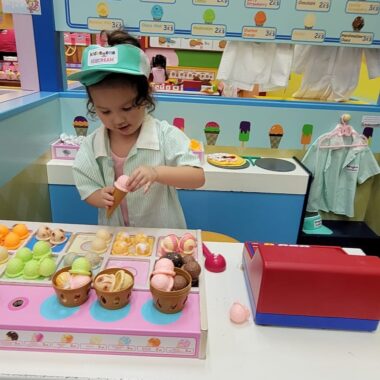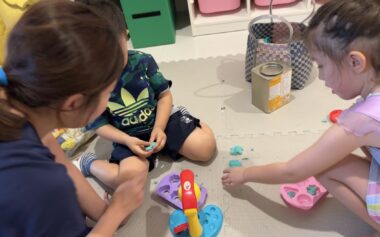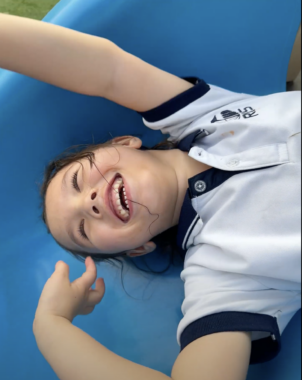Play dates help our daughter catch up with social milestones
Our child lost developmental time as she grappled with her symptoms
Written by |

Our daughter, Rylae-Ann, quickly prepared a selection of delicious ice cream and scooped some onto a cone. She excitedly called out her friend’s name and passed him her colorful concoction while shouting a series of words to explain what she’d created.
Rylae-Ann was born with a rare disease known as aromatic l-amino acid decarboxylase (AADC) deficiency. She was unable to move for the first two years of her life because of the severe symptoms of this neurotransmitter disease. It left her trapped in her body, unable to move or speak. Fortunately, she received gene therapy before she turned 2.
The long road of recovery had my wife, Judy, and I trying to teach Rylae-Ann to move muscles she’d never moved before. That meant her childhood was spent attending therapy sessions, exercising, and painfully reaching each milestone she hadn’t mastered as a baby. We’re so proud of her efforts and how far she’s come, but the trade-off was that she wasn’t involved in the typical activities of other children.
Instead of attending birthday parties, play dates, and hanging out with friends, she was with Judy, me, and other paramedical professionals. It may not seem crucial, but playing and socializing with other children is vital to children’s development.
Learning to play with others
Typical children learn to develop healthy relationships by playing with other children. They learn the importance of teamwork and collaboration as they share toys or build towers. They yearn to talk and, thereby, try new words. They have an innate desire to acquire vocabulary and communicate. Even advanced skills, such as problem-solving and emotional regulation, develop through children playing with one another.
This natural and essential development was not part of our daughter’s early childhood. We did our best to make friends with other families, but our daughter’s goals didn’t align with those of our friends’ children. We needed to first close the developmental gap by focusing on gene therapy aftercare.
Today, her physical development and motor skills are at a level where she can play with other children. She even has friends who are older than her. However, her development of social skills is obviously lacking. She gets scared, easily upset, and anxious. She has a limited vocabulary to express her emotions, which compounds the problem.
Just as we do with physical therapy, we look at social skills development not in ages, but in milestones. Instead of comparing Rylae-Ann with other children her age or creating activities for a typical 5-year-old, we consider her current level and goals.
Playing with others
We began looking for friends with whom Rylae-Ann could play. We organized play dates with children who were older and younger than her.
A typical play date is usually a time for parents to socialize. Parents of neurotypical children use it as an opportunity to gather socially while the kids play.
For us, it was different. We explained to our friends that play time was actually a class, but neither child would know it. There’d be no social get-together for the parents. Instead, we’d be involved with the children as facilitators of the play.
As educators, we use this technique all the time. We create an environment to get the desired results. In this scenario, it’s about building social skills, so we arranged appropriate activities and games.
Judy and I begin with a substantial physical presence as we introduce the activities to the children. Over time, we step back and let the children play independently. We step back in as needed — or sometimes stay the entire time as just another player.
The whole time, Judy and I are thinking about how to provide safe opportunities for building social skills, how we can role model the actions and language we want Rylae-Ann to use, and what we need to do to diffuse a problem.
Inclusion benefits all
Rylae-Ann is making significant progress. However, she has hit other kids, thrown toys, and had the quintessential Rylae-Ann crying meltdown. Even though she is 5, we must remember to consider her developmental milestones instead of what’s expected of a kindergartener. Using her reborn date, when she got gene therapy, helps us remember the world from her perspective.
Additionally, a play date is not just a one-way benefit for Rylae-Ann. Her buddies also benefit from playing with her; she teaches them just as much as she learns. Rylae-Ann’s strengths include empathy, creativity, and positivity. Our play sessions teach both children about the importance and acceptance of diversity.
Rylae-Ann may not have the skills to prepare real homemade fresh ice cream just yet, but her pretend world of play with her friends offers essential developmental skills that will carry on with her long into the future.
Note: AADC News is strictly a news and information website about the disease. It does not provide medical advice, diagnosis, or treatment. This content is not intended to be a substitute for professional medical advice, diagnosis, or treatment. Always seek the advice of your physician or other qualified health provider with any questions you may have regarding a medical condition. Never disregard professional medical advice or delay in seeking it because of something you have read on this website. The opinions expressed in this column are not those of AADC News or its parent company, Bionews, and are intended to spark discussion about issues pertaining to aromatic l-amino acid decarboxylase deficiency.









Leave a comment
Fill in the required fields to post. Your email address will not be published.